“I’m not a Satanist, I’m an atheist, but I write the best Satanic lyrics on the planet”: How Slayer went from thrash provocateurs to metal’s unlikeliest elder statesmen
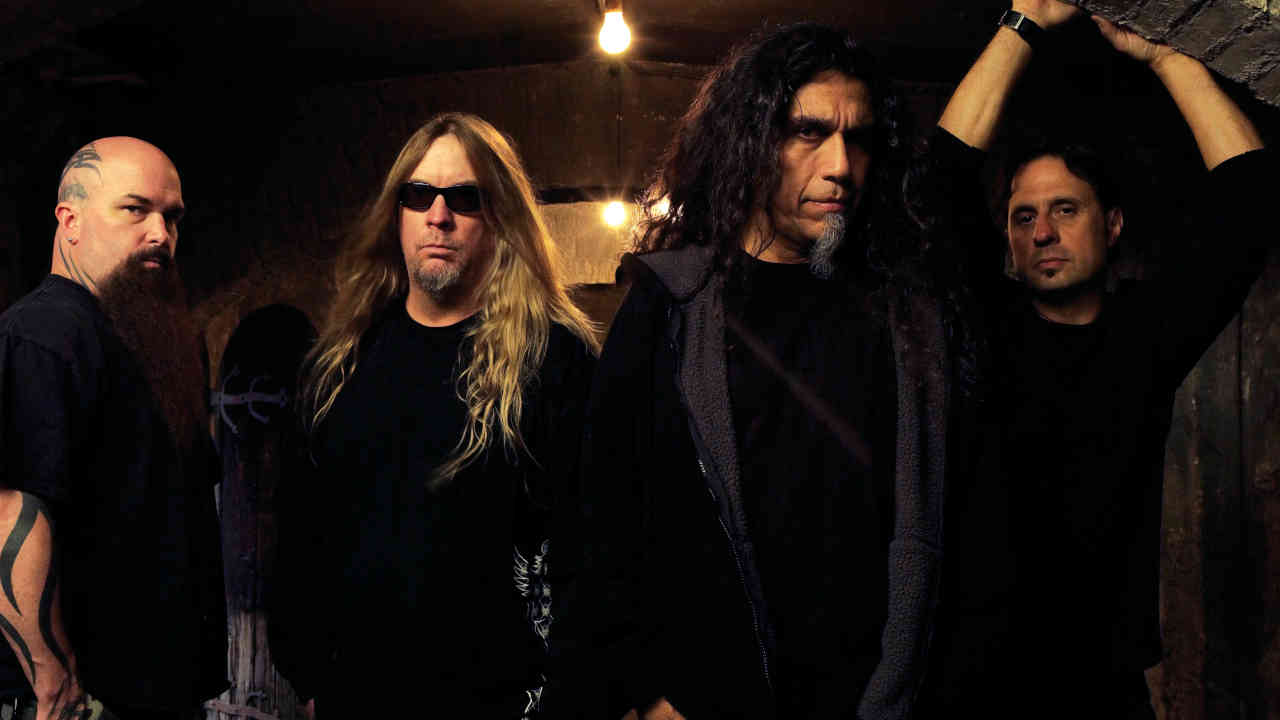
The recently reunited Slayer formed in 1981 in Los Angeles and helped pioneer the whole thrash genre. In 2006, as they marked their silver jubilee with new album Christ Illusion, Classic Rock caught up with a band who refused to mellow with age.
It is the most innocuous of mini-malls, buried in the back of an industrial part of Corona, California, a typical So Cal suburb complete with a freeway running close by. Amid the glass-plated store fronts sits Napa29, a quiet, serene restaurant. And when your Classic Rock scribe saunters in (wearing a skull-adorned T-shirt) and starts to ask about a “reservation for Mr King”, the hostess interrupts, saying: “Kerry King isn’t here yet. He always sits in the corner of the bar though, so you can wait in there if you like.”
This, it quickly transpires, is the Slayer guitarist’s home from home; the place where he and his wife Aiesha come for a cocktail or two, some good food, some friendly company. With its upmarket light wooden walls and low-key atmosphere, it doesn’t look like the kind of place you’d expect to be favoured by a shaven-headed muscle-man adorned with tattoos and sporting a rather satanic biker beard. But once Kerry King arrives it all makes perfect sense; just a regular, local guy in his favourite restaurant, and the fact that he is very polite and congenial (almost bordering on shy at times) adds to the comfort zone.
Indeed it’s difficult to imagine that the man sitting quietly is the very same buzzball of seething rage who recently wrote lyrics such as ‘Religion is rape, religion’s obscure, religion’s a whore’ and ‘Obliterate, depopulate, divine atrocious suffering’. Then again, when it comes to torching subjects such as these, King, and Slayer, are the most élite of professionals. That’s because Slayer, the most aurally extreme band in heavy metal history, have been doing it successfully since the early 1980s; because their 1986 masterpiece Reign In Blood is widely considered to still be one of the most brutal and extreme 29 minutes of music ever recorded. Which, quite frankly, makes Slayer classic rock in every sense of the term. Moreover, Slayer are still punching their weight, as evinced by their latest record, Christ Illusion, their best album in more than a decade.
“I can say we definitely have made a mark,” King reflects, cocktail in hand. “We’ve made a big-ass blip on the radar screen, and we just came in at No.5 on the Billboard Top 50 US album chart [with Christ Illusion]. So I suppose somebody’s paying attention.”
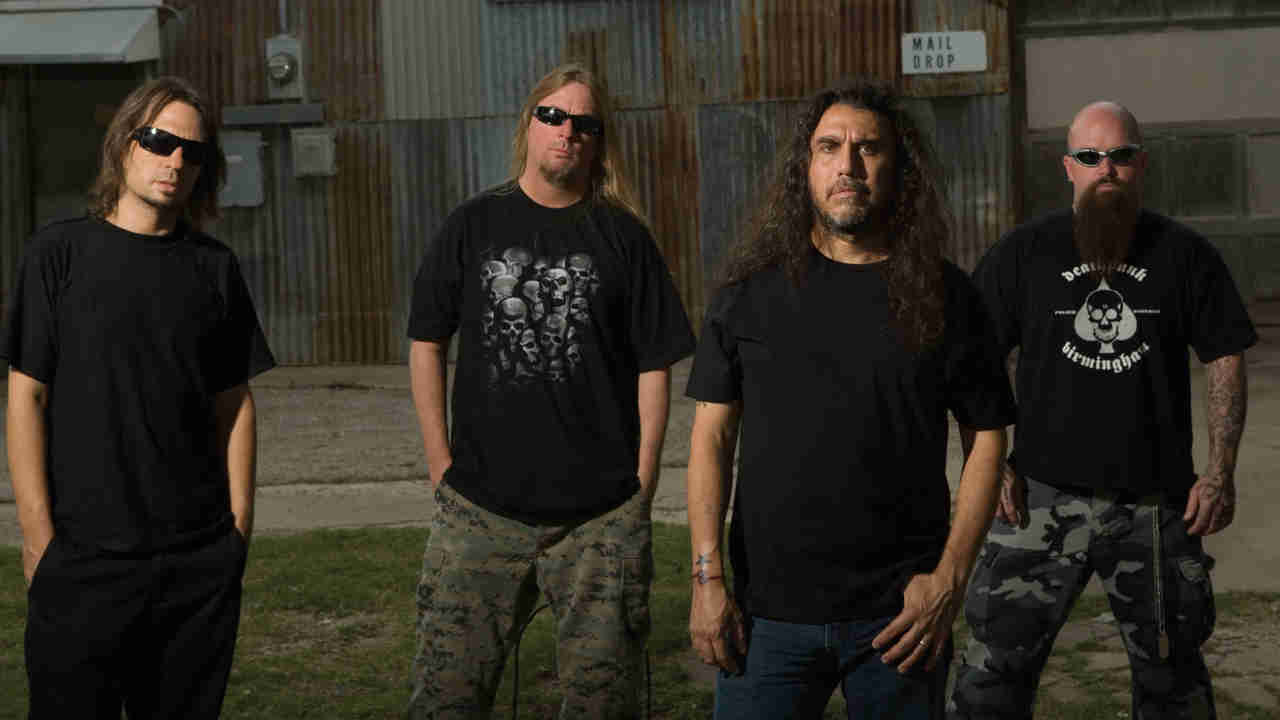
It’s probably true to say that Slayer have joined the elite of metal history, along with Black Sabbath, Iron Maiden, Judas Priest and Metallica – among the handful of the most important rock bands of all time. And Slayer’s influence doesn’t seem to be diminishing in the slightest.
“You’d be amazed at which bands regard us a heroes,” chuckles Tom Araya, who with drummer Dave Lombardo is speaking separately to Classic Rock just after Slayer’s recent appearances at the Leeds and Reading Festivals. “My Chemical Romance love us. So do Taking Back Sunday and Bullet For My Valentine. I’m not sure if you can hear any Slayer riffs in their music, but they claim to be fans.”
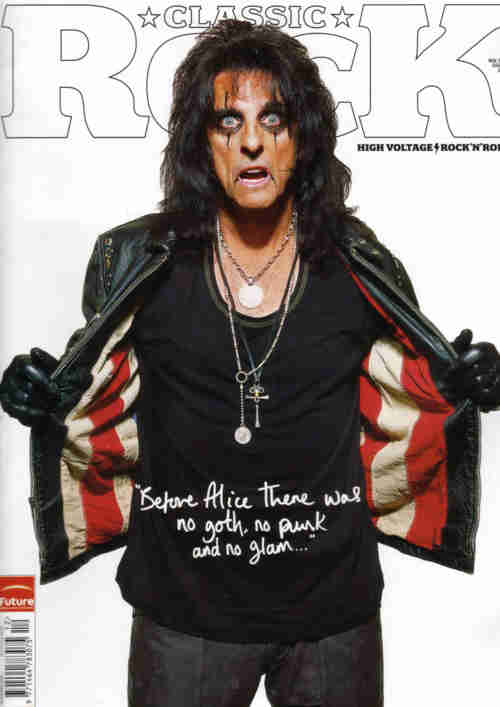
“A lot of the younger heavy metal bands, like Mastodon, are obviously inspired a little by us,” Lombardo adds. “When we played Leeds [on August 25] we had a lot of them coming up and thanking us for putting them on the bill. Of course, we didn’t have any say in that decision. But they took it as an honour to share the same stage as us. It’s a nice feeling, that sort of respect.”
It would be hard for anyone with a love of loud, aggressive music not to pay respect to Slayer. Christ Illusion (written mostly by Kerry King) displays a blistering intensity of bitter anger, frustration and disgust that even the bleakest nu-metal misanthropes find difficult to replicate with the same level of sincerity.
“I see things every day that piss me off,” King grumbles. “Traffic pisses me off, dumb people piss me off, rude people piss me off. Because, yes, I may be in Slayer, but I’m a courteous motherfucker! And it really bothers me when shit doesn’t happen as it should, when people are rude. It’s like: ‘I’ve gone out of my way to be courteous to you, so why are you a dickhead?!’ I don’t harbour that, but I can tap into it if I’m writing a song; I can invest in a premise and go to a bad place. And it isn’t hard to find, all day, every day.”
As Classic Rock nod our empathetic approval, King roars on: “A lot of times in public, I won’t say anything because I can get in trouble for it. But my wife feels the same, and we’ll both be out just thinking: ‘That’s fucking uncool.’ Or whatever. Like if a car doesn’t
signal when it’s changing lanes, I get pissed off about it. If I wind my window down and scream: ‘Nice signal, asshole!’ What are they gonna do? Because I look like a convict. Look, if you’re inconveniencing me by not signalling, then I fucking hate you!”
Slayer – Angel Of Death (Live At The Augusta Civic Center, Maine/2004) – YouTube 
Despite looking like the sort of man who would rip off your head just for laughs, King is actually a cheerful fellow, the sort of guy who enjoys having a drink and watching football more than fighting or getting angry. But there’s little doubt that he, and Slayer, are unafraid to question and confront anything that doesn’t make sense to them. Which is why, ever since the band formed in Huntington Park, California, in late 1981, Slayer have consistently invoked controversy because of their attitude toward religion. Indeed, it has been claimed their name is an acronym, standing for ‘Satan Laughs As You Eternally Rot’. Being a confirmed atheist, King simply does not accept the various forms of religious rhetoric he hears.
“Look, I can get into anything I write about. I can write about serial killers; I can be a fucking Satanist. I’m not a Satanist, I’m an atheist, but I write the best satanic lyrics on the fucking planet. And it’s great entertainment. And religion is the funnest thing to make fun of.
“I remember back in 1990 during the Clash Of The Titans tour [with Anthrax, Megadeth and an unknown Alice In Chains], we had this religious talk-show guy Bob Larson out doing a special story on us for Spin magazine. Me and Jeff [Hanneman, fellow Slayer guitarist] have always been very similar in how we think about religion and atheism. So we’d listen to this guy – as I believe you should; you should always hear people out. But whenever I tried to question his beliefs, he’d go on the defensive and say: ‘It’s because the Bible says so.’ So then I’d ask: ‘Who the fuck wrote the Bible?’ Because to me it’s like a fairy tale that has been translated many times. And that’s when I realised these people are just fanatics. That’s when the seed got planted in my head to write about them. Because they really are out of their fucking minds.”
There’s always been an irony in Slayer’s double-decade dance with blasphemy and Satanism. Frontman and bassist Tom Araya has always held religious beliefs, yet he has found himself delivering a menagerie of anti-religious lyrics. It must have made for an interesting conversation somewhere in there over the years.
“I don’t think Tom’ll ever have that discussion with me, because he knows that I wholeheartedly don’t believe what he believes,” King ponders. “But I would listen to him talk about it at any time. And I’ll never ask him about it, because I don’t wanna throw that question of doubt into things. So really I think it’s something we both know is best left unspoken.”
But it isn’t all anti-religion as far as Slayer are concerned. In 1986 it was the song Angel Of Death (from Slayer’s seminal Reign In Blood album), which dealt with Nazi death camp doctor Josef Mengele, that twisted the knickers of the moralists into knots. Now, Jihad, from new album Christ Illusion, written from the viewpoint of a religious terrorist, is having a similar effect.
“Here we go again!” Araya sighs. “But upsetting people is never something we set out to achieve. People might get upset, but what can we do? It’s more about their ignorance; we’re not condoning terrorist actions. When Jeff came up with the song, for a split second I did think, ‘We’re gonna get shit.’ But that’s not gonna stop us from recording it.”
While that incident might cause minor irritation for the band, there was one occasion when their very existence was under threat. In 1996, 15-year-old Elyse Pahler was strangled and stabbed 15 times by Royce Casey, Joseph Fiorella and Jacob Delashmutt. The three youths claimed that their victim had been a sacrifice to Satan, in the perverted belief that this would help their band, Hatred, to become successful. Five years later, Pahler’s parents sued Slayer, claiming that the three boys were fans of Slayer and that their lyrics had ‘inspired’ such an horrendous act. The case was eventually thrown out of court, but it shook up Araya.
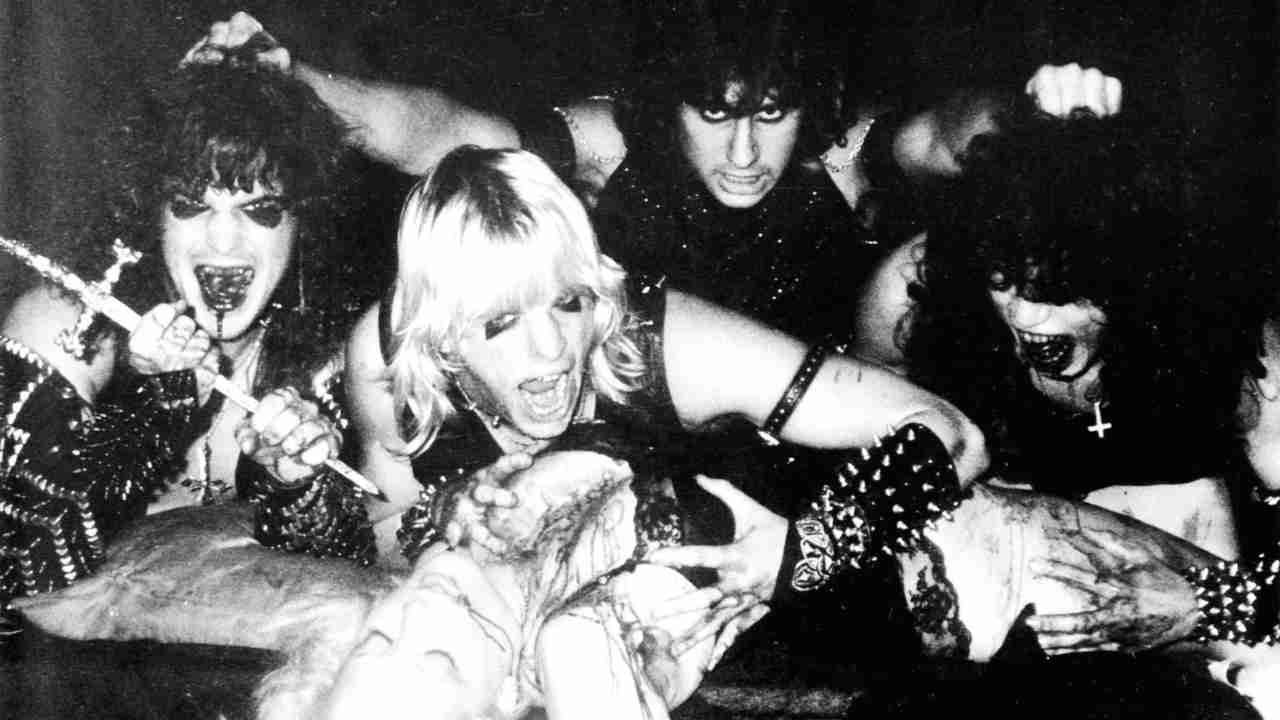
“I really started to think at one point that I was staring down the barrel of being found guilty as an accomplice to murder. Seriously, the case was all about proving that we should take responsibility for the murder, because of our lyrics. Crazy! But I wondered whether I’d be sent to jail for life.
“We weren’t the first band to face a lawsuit like that – Judas Priest and Ozzy had been through it before – but I felt we could be made an example of. It scared the hell out of me. Why should I be held to account for a murder that I took no part in? In the end the only winners were the lawyers, who got rich. When the bill came through, our label at the time [Sony, also named in the lawsuit] paid it off, but then passed it all on to us. We really were facing financial meltdown. It was a tough time for all of us. There was a great danger that we could split up, and it took us a long time to pay Sony back.
“As a parent, I also couldn’t understand the motives behind the suit. If my son ever did anything like that, I would tell him that he had to take full responsibility. I’d stand by him, and I would do my best to make sure that he didn’t face the death penalty, but one thing I would never do is look for an unconnected scapegoat. It is all about facing up to the consequences of your actions.”
The incident helped the members of Slayer bond together. After all, they have had more than enough time to figure out each other’s needs, thus avoiding the sort of conflicts that cause the break-up of bands.
“It’s all part of growing up,” King reflects. “We’re all different. Jeff and I hang out more, Tom and Dave have families so they don’t hang out, and that’s cool. When we’re on stage, doing what we do as well as we can do it, that’s what’s important. I mean, when Dave came back to the band he was fresh. When Dave quit the band [in 1992; he also left briefly during the Reign In Blood tour] I’d have put daggers in his eyes! But when he came back [in 2001 for the Ozzfest tour], I’d grown up, he’d grown up and we didn’t have the same issues. And I know he’s having a great fucking time, and with him being there I want it to be this way until we’re done. I don’t ever wanna look for another drummer again, and I’d like it to finish the way we started. I think that’d be awesome.”
Despite the occasional change in drummer (Tony Scaglione, Bob Gourley, Paul Bostaph and John Dette have all having stepped in at various times) King, Hanneman, Araya and Lombardo are all original members of Slayer. Even Metallica only have two founder members left. So what’s the secret?
“Compromise. Simple as that,” states Araya. “If you are to get through the tough times – and we have had them – then you must be prepared to compromise. If you can’t do that, then the band will split up. But… there’s one member of this band who’s compromised more than any other: me.”
There appears to be a look of concern in Araya’s eyes, as he realises once again how close he came to losing something that has defined his life for so long. There’s also something in his voice that seems to indicate an acknowledgement that it’s his fear of the unknown – of a world outside of the band – that has helped him to stay loyal, despite the way he has been treated over the years.
SLAYER – Eyes of The Insane (OFFICIAL MUSIC VIDEO) – YouTube 
“There was a period when my input into Slayer was diminishing all the time,” he reveals. “My songs were barely used, and I wasn’t being listened to. It was all very frustrating. I was getting loads of offers to join other projects, to write songs for people, to guest on their records. And I turned them all down because I believed so much in this band. But I was watching as my influence was melting away.
“The turning point came when I guested on the Soulfly song Terrorist [from 2000’s Primitive]. That really fired me up, and I started to write a lot of ideas, took them to Kerry and Jeff… and I was still ignored. I then had to sit down and face up to the situation: did I want to carry on with Slayer under those conditions, or was it time to confront them? I felt that I had to compromise and do my best to make sure that we continued. The three of us are like a tripod: if one leaves, then the thing collapses.”
It’s at this point that Lombardo jumps in, and tries to encourage Araya to believe that he can work on projects outside of Slayer without losing touch with the band. The drummer has worked with other musicians including Fantômas, Testament, Apocalyptica, John Zorn and Grip Inc.
“I found that I could use creative energy in other situations,” Lombardo says. “There were things that I did which could never work with Slayer. But it was a huge release. That meant I could accept what Slayer were without feeling that I was missing out. Come on, Tom, you could do the same thing. What are you afraid of?”
“I do have a lot of songs stored up that I’d love to use on a solo album one day, but not right now, ” Araya responds. “I’ll have to wait, otherwise it will mean breaking the egg,” he adds, his face showing a surprising strain. “One day, though…”
Lombardo: “Why not multitask?”
Araya: “Because I can’t do that sort of thing. Some people can, I know. But for me, if you do more than one project, then you spread yourself too thinly, and you end up giving 10 per cent to each one. I have to focus on one thing, to give it 100 per cent. And that’s gotta be Slayer.”
Lombardo: “Well, I found it uplifting to get away from Slayer, to see the bigger picture. I really think you should try it.”
At this point, Araya shrugs his slightly slumped shoulders and deliberately steers the conversation in a different direction.
“You asked how we’ve managed to stay together for so long. One reason is that we don’t go public with everything. There’s been stuff that’s gone on in this band that could have split us up, but we dealt with it internally and moved on. We would never think about doing what Metallica did with the Some Kind Of Monster DVD. That would have been the end of us. I don’t understand how they could do that.”

In the course of their near-25 year career, Slayer have cultivated a fan base of such physically (and spiritually) intense proportions that the odd riot or few has been inevitable. Like the time in 1987 when fans rearranged the seats at Manhattan’s Irving Plaza; or the ruck in 1988 at the Hollywood Palladium that saw the street blocked off at each end, with riot police, helicopters, a venue seething with raw, feral chaos, and an awful lot of damage caused in the process.
“That riot at the Palladium cost us a gig in Los Angeles county for years,” exclaims King, amused in retrospect. “We couldn’t go back for a long time. They over-sold that show and so there were a lot of kids who had tickets who couldn’t get in. I’d have been pissed, too. Our fans are the last ones you wanna mess with. They’ll band together, and someone will be appointed the general of the group, and shit will happen. The Palladium was a big deal, because we were banned from LA until a couple of years back when we finally played Universal Amphitheater. Before then, nobody would take us on.”
Those riotous gigs were the catalyst for a policy that Slayer initiated in the late 1980s that saw them do everything in their power to play general admission (no seats on the floor) shows and tours, as well as change the way over-zealous concert security interacted with their raucous fans.
“We had to take our own security guy out, not to protect us but to protect the kids,” King explains. “Jerry Mele [who went on to do venue security for the likes of U2 and Ozzy Osbourne] would go the venues and explain to the security how they [the fans] were going to behave. He came in right around the time of the Clash Of The Titans tour. He helped change shit out there.”
No one will convince Classic Rock, however, that Slayer don’t feel a warm sense of glee at their ability to cause such mayhem.
“Irving Plaza was instant gratification,” King grins. “Tom went out there, trying not to smile his ass off, and he has a hard time not smiling anyway. He went out there and said: ‘You’re making it so as we can’t play here again, and that fucks you up as well as us, because you won’t be able to see us here again.’ I remember that on stage left and right there were mountains of seat cushions!
“So yeah, it’s fun to a degree, but at the end of the day someone’s got to pay for that, and it’s most likely us. That was also the beginning of getting rid of the seated gigs. I remember at one show on the Tattoo The Earth tour in 2000, they had seats down in front of the stage. I remember thinking: ‘Bad idea.’ And sure enough, they were coming up on stage in batches. People were freaking out, but we pointed out we didn’t ask for it.”
Slayer – Raining Blood (Live) – YouTube 
Kerry King fixes Classic Rock with a cold, hard stare: “We have never been instigators and I’m proud of that. I mean, Tom is exceptionally mellow, and he never incites a crowd to do stuff. Because they do it themselves. And it’s cool that Slayer fans do what they wanna do because they wanna do it, and not because they’ve been told to.”
Back on the horizon of music, it’s true to say that what one generation takes as the ultimate in extremity, subsequent generations see a little trite. There’s no question that Slayer are no longer regarded as the last word from the underground, as they were when albums like Show No Mercy and Hell Awaits hit in 1983 and 1985 respectively. Now they’ve moved more towards the centre of the metal firmament. But what that has done is convince previous sceptics that, in reality, Slayer are superb musicians who write melodic songs.
“I am proud at being able to play in a band with such musicians,” laughs Araya. “Kerry, Jeff and Dave are brilliant. And, in the past, we never got the credit for that. Maybe now it’s changing. As for the songs, we take a lot of trouble in making them as good as possible. We spend ages working everything out meticulously. Unlike other bands we don’t use songs rejected for one album as the basis for the next album – if you do that, then you end up with a shit record. Your best stuff goes on the album, the rest… well, you throw them away. We wrote 14 songs for Christ Illusion, and then chose 10 from that list. It took a while, because we were very careful. That may surprise those who think all we do is go into the studio and just blast out a load of riffs at 200 miles per hour…”
“210 miles per hour!” corrects Lombardo.
“Yeah, 210 miles per hour,” continues Araya. “But if that happened, then albums like Reign In Blood would never have happened. I suppose that’s another reason we’ve been on the scene for so long. We give everything maximum care and attention.”
Soon Slayer will hit the magical silver anniversary mark. For a lot of people, it will be cause for celebration. But for the band themselves…
“Well, Jeff put it best when he was asked about that recently. Everybody else can party for us!” announces Araya. “I can’t even comprehend that we’ll have been around for so long. But that sort of thing means more to the fans than it does to the four of us. That’s not to say we’re ungrateful, but maybe we’re just too close. After all, Jeff, Kerry, Dave and I are ‘only’ in the band. We can’t know what it’s like to be on the outside looking in.
And with that, two of the finest musicians in the history of heavy metal head for their hotel rooms. To many, Slayer defined thrash, and deified it on Reign In Blood. But in ’06, they’ve become elder statesmen, with fans who span the generations. In their own way, they’ve moved effortlessly into the heritage rock category, while also retaining an intense credibility with today’s grass-roots metal scene. A feat that, perhaps, nobody else has achieved.
“Are we a classic band?” wonders Araya. “Yes, I’d like to think we are – but we’re classic heavy metal. Always metal.”
Originally published in Classic Rock issue 99, August 2006

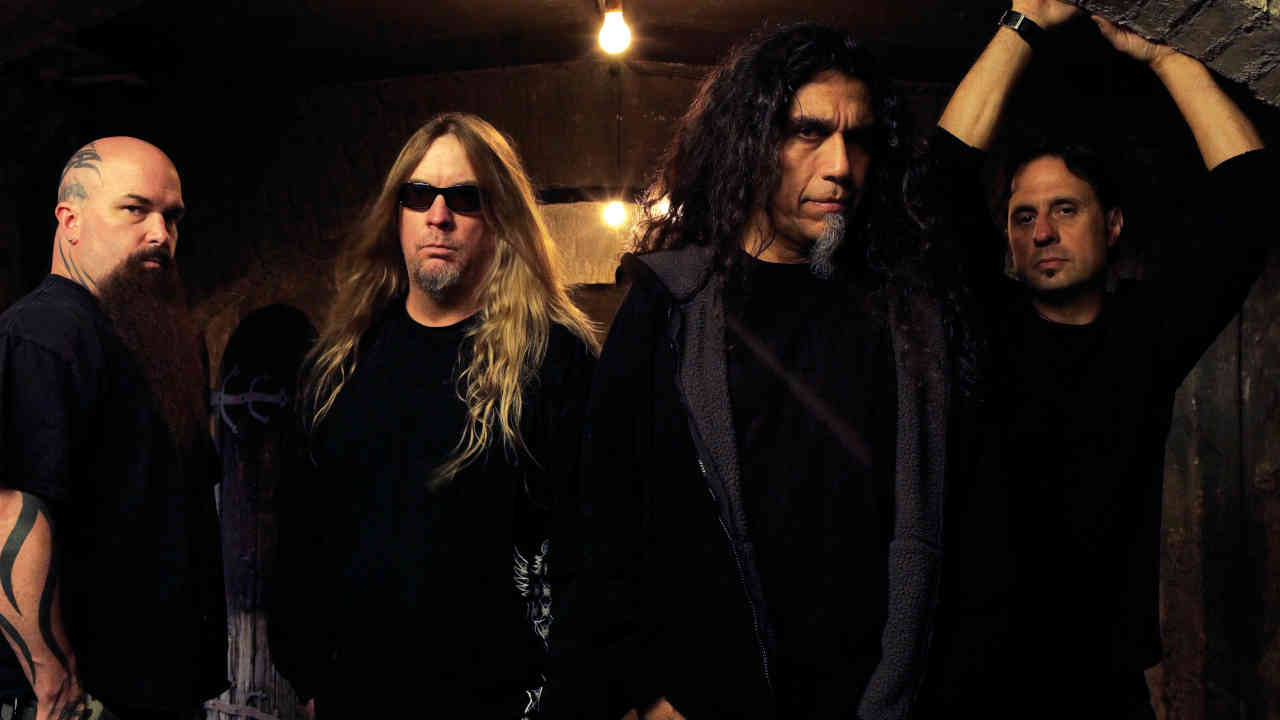
Normally I don’t read article on blogs, but I wish to say that this write-up very forced me to try and do so! Your writing style has been amazed me. Thanks, very nice article.